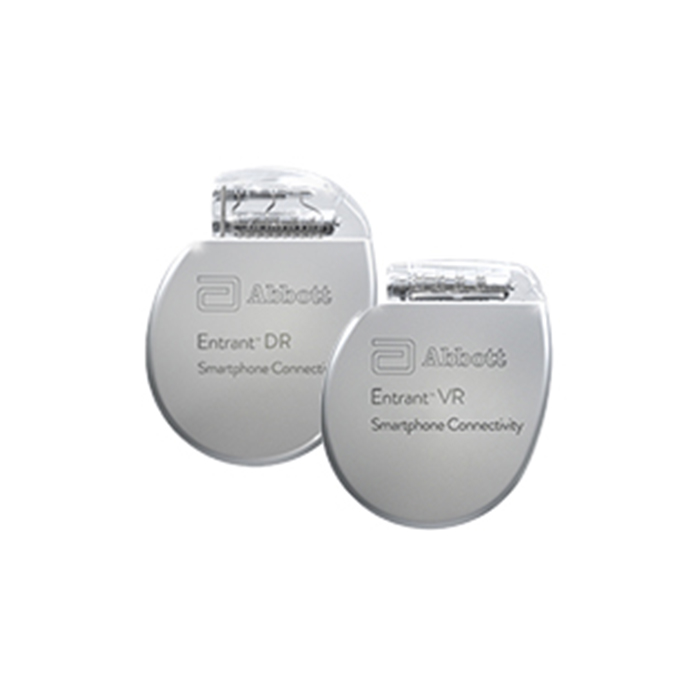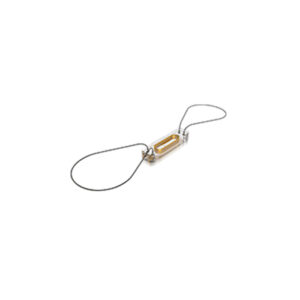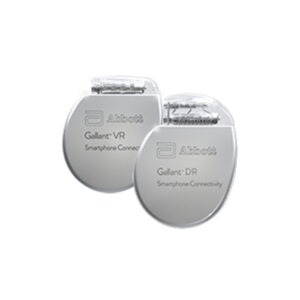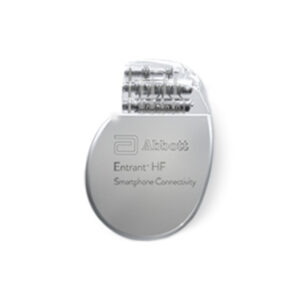Description
Rx only
Intended Use: Implantable Cardioverter Defibrillator (ICD) devices are intended to provide ventricular antitachycardia pacing and ventricular cardioversion/defibrillation.
The myMerlinPulse™ mobile app is intended for use by individuals with an Abbott Medical implanted heart device and access to a mobile device. The application provides remote monitoring of the implanted cardiac device by transmitting information from the patient’s implanted cardiac device to the patient’s healthcare provider.
Indications: ICDdevices are indicated for the automated treatment of life-threatening ventricular arrhythmias.
In addition, dual-chamber ICD devices with the AT/AF detection algorithm are indicated for patients with atrial tachyarrhythmias or patients at significant risk of developing atrial tachyarrhythmias.
MR Conditional ICDs are conditionally safe for use in the MRI environment when used in a complete MR Conditional system and according to the instructions in the MRI-Ready Systems manual. Scanning under different conditions can result in serious patient injury, death, or device failure.
The myMerlinPulse™ mobile app is indicated for use by patients with supported Abbott Medical implanted heart devices.
Contraindications: Contraindications to the use of the pulse generator system include ventricular tachyarrhythmias caused by transient or correctable factors such as drug toxicity, electrolyte imbalance, or acute myocardial infarction.
Use of the myMerlinPulse™ mobile app with any implanted medical device other than supported Abbott Medical implanted heart devices is contraindicated.
Adverse Events: Possible adverse events associated with implantation of the pulse generator system include: Arrhythmia (eg, accelerated or induced), Bradycardia, Cardiac or venous perforation, Cardiac tamponade, Cardiogenic shock, Death, Discomfort, Embolism, Endocarditis, Erosion, Exacerbation of heart failure, Excess fibrotic tissue enlargement, Extracardiac stimulation (phrenic nerve, diaphragm, pectoral muscle), Extrusion, Fluid accumulation in device pocket, Hematoma, cyst or seroma formation, Heart block, Bleeding, Hemothorax, Hypersensitivity , including local tissue reaction or allergic reaction, Infection, Keloid formation , Myocardial damage, Nerve damage, Occlusion/Thrombus, Pericardial effusion, Pericarditis, Pneumothorax, Pulmonary edema, Syncope, Thrombosis, Valve damage. Complications reported with direct subclavian venipuncture include pneumothorax, hemothorax, rupture of the subclavian artery, arteriovenous fistula, neural injury, thoracic duct injury, cannulation of other vessels, massive hemorrhage, and rarely death. Psychological effects of device implantation include phantom heartbeat, depression, addiction, fear of premature battery drain, device malfunction, inappropriate heartbeat, conscious shock, or loss of heart rate capability. Possible adverse device effects include complications from: , Abnormal battery depletion, Conductor breakage, Device-programmer communication failure, Rise or rise in defibrillation/cardioversion threshold, Unable to defibrillate or pace, Inability to query or program due to programmer or device malfunction, Missing with pulse generator lead connection, Impaired therapy, including defibrillation and pacing, Improper therapy (for example, shocks and antitachycardia pacing where appropriate [ATP], pacing), Interruption of function due to electrical or magnetic interference, Intolerance to high-rate pacing (for example, shortness of breath or discomfort), Lead abrasion, Lead fracture, Lead insulation damage, Lead migration or lead dislocation, Loss of device functionality due to component failure, Pulse generator migration, DFT threshold rise, Pacing threshold rise and output block, Defibrillation paddles de-energized, System failure due to ionization radiation. In addition, potential adverse events associated with the implantation of a coronary venous lead system include: Allergic reaction to contrast material Breakage or malfunction of implant instruments Prolonged exposure to fluoroscopic radiation Renal failure due to contrast agents used to visualize coronary vessels. See the User’s Guide for detailed intended use, indications, contraindications, warnings, precautions and potential adverse events.
No potential side effects have been identified with the use of the myMerlinPulse™ mobile application.







